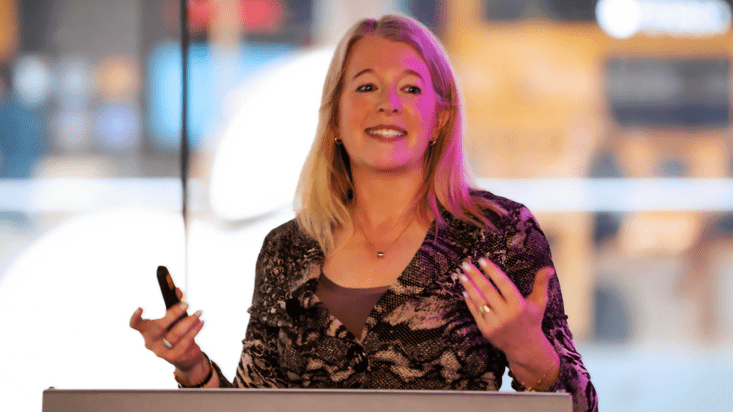Brigid Asquith-Hunt and the language of legacy in financial advice
It was not so much a grand plan that saw Brigid Asquith-Hunt living the life she currently does, but more a case of serendipity, of taking multiple forks in the road. But Asquith-Hunt would not have it any other way.
Asquith-Hunt runs Partner in Time Consulting, a boutique firm she started in 2007, after more than a decade working in practice management and capability development roles, with a mission to empower individuals, teams and organisations through transformation and growth.
While the client list includes a range of professional services firms, Partner in Time naturally has a specialisation in the financial advice industry, which Asquith-Hunt describes as “growing the capability of those who help others achieve financial freedom”. Within that broad ambit, Partner in Time provides outcome-orientated services to predominantly small-to-medium-sized advice firms, including strategic planning, ‘visioning’ and values sessions; leadership development and coaching; client engagement and experience mapping sessions; marketing and referral strategies; team development and capability training.
That is the long version; what the business really strives to do first and foremost is to help advisers connect with their clients. While virtually every adviser professes to want to enhance the client experience, create stronger relationships, make their team more effective and strengthen the delivery of value, “connection” is the key to all those aims, Asquith-Hunt says.
“Assuming you operate with trust and ethically, and have strong processes and systems, connection is the secret sauce,” she says. “But that means connection with all your stakeholders: clients, the children and loved ones of your existing clients, your team, business partners, suppliers and the community in which you operate and live. And by connection, I mean ‘emotional connection’ where goodwill, reciprocity and mutual benefit resides. You have to get to the heart of what drives and motivates all those that you interact with, and impact.”
Language, in particular, is central to this process. For example, Asquith-Hunt recently presented at an INPractice masterclass on the conversations that unearth clients’ “legacy values”, or the values that inform how they want their legacies to be impact the people close to them – she has been doing a lot of work in this area with practices.
“Everyone can benefit from improved language and communication skills, but the reason I focus on language, specifically, when presenting the ‘legacy discovery’ process, is because unearthing ‘legacy values’ is not something that we do routinely – for most people, these are subliminal thoughts and influences,” she explains. “If you’re having a legacy discovery conversation with a client it’s likely to involve deep reflection and an emotional response – we need to adopt a well-mapped process to facilitate this, and our consideration of both verbal and non-verbal language is central to its success. For example, you would not ask a ‘why?’ based question when you’re getting to the heart of what a client wants their legacy to be – and ‘why’ can be perceived as judgmental.”
Not surprisingly, given her work in legacy discovery, Asquith-Hunt believes the predicted ‘inter-generational wealth transfer’ of $3.5 trillion will be a “game-changer” in the way advice businesses operate.
The current standard ‘ideal client’ of a baby-boomer pre-retiree will shift, and with that, advice businesses will have to build a model that appeals to a broader clientele to stay relevant and therefore, sustainable, she says.
“Those that adapt their business model, proposition, systems and processes now will reap the rewards, but it’s a case of ‘what comes first: the chicken or the egg?’ Do you evolve your model, proposition, etc ahead of the transfer – that is, incur the financial and resource cost now – or wait for the bulk of the transfer to happen? I think we all know the best response to that in terms of building enduring, sustainable financial advice businesses.”
Financial advice is not the only service business that is facing challenges, but Asquith-Hunt sees a bright future for it. “I think the cup is half-full, not half-empty. The biggest opportunity for the industry is to restore trust. The outlook for the industry is super bright with technological advancements and industry innovation paving the way for financial advisers to deliver advice that meets the evolving needs of clients of all ages/generations, ethically and responsibly,” she says.
This comes back to the fact that advisers are not delivering something that is always tangible. “Think of the peace of mind and confidence that sound financial advice delivers,” she continues.
“All service businesses must continually identify and communicate the intangible benefits to clients, in addition to the tangible benefit. Building connection with clients and delivering empowering financial advice is a privileged opportunity. It is not always easy to do, but the rewards are great for financial advisers – both financial and non-financial.”











